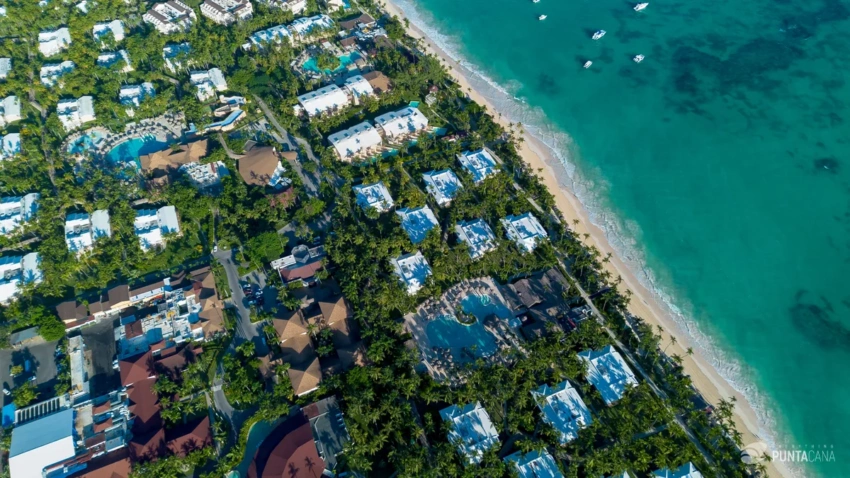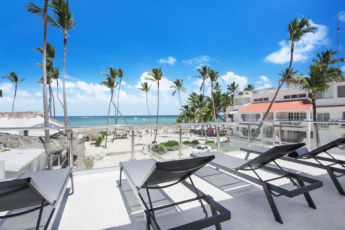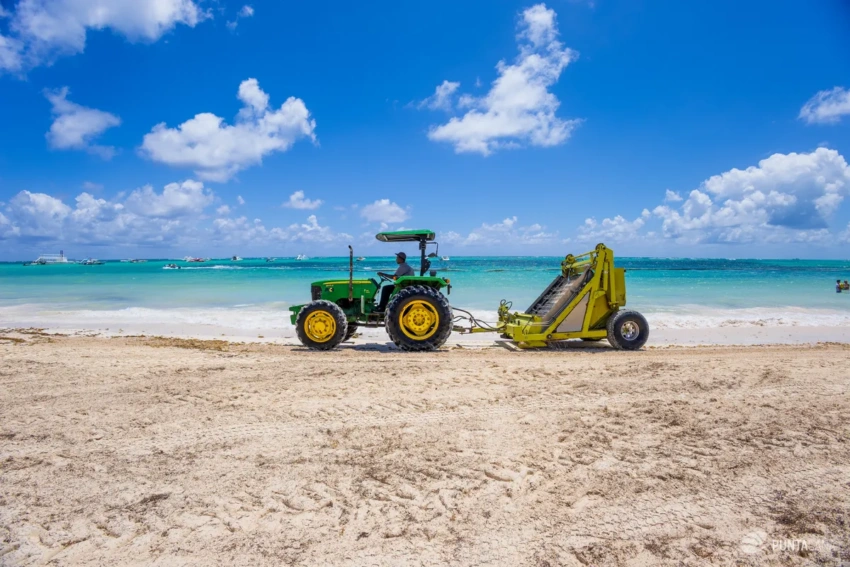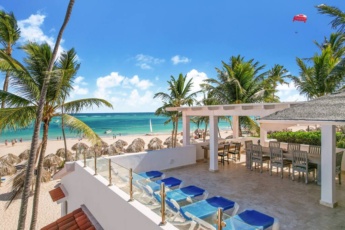Is Punta Cana Safe? Tips for a Secure and Stress-Free Vacation
Understanding Punta Cana’s Safety Landscape

Is Punta Cana Safe? Tips for a Secure and Stress-Free Vacation
Punta Cana, a prime tourist destination in the Dominican Republic, is renowned for its stunning beaches, vibrant culture, and luxurious resorts. However, like any popular travel spot, understanding the safety dynamics is essential for a worry-free vacation.
1. Crime Rates and Areas to Avoid
The crime rate in Punta Cana, particularly violent crime, is relatively low compared to other regions of the Dominican Republic. However, petty crimes such as pickpocketing and theft can occur, especially in crowded areas and popular tourist spots. According to the Dominican Republic’s National Police, these incidents tend to happen in busy markets and public transportation hubs rather than within the confines of resorts.
To enhance safety, tourists should be aware of areas to avoid, particularly after dark. For instance, while the Bavaro Beach area is generally safe, the vicinity surrounding some local bars and nightclubs can become less secure at night. It’s advisable to stay within well-lit areas and travel in groups whenever possible. Furthermore, visitors should refrain from displaying expensive jewelry or electronics, which can attract unwanted attention.
2. Health and Medical Facilities
Healthcare services in Punta Cana are accessible, with several private clinics and hospitals catering to international tourists. Facilities such as Hospiten Bavaro provide high-quality care, including emergency services and multilingual staff. It’s crucial for travelers to have travel insurance that covers medical expenses, as healthcare services can be costly without coverage.
In the event of a medical emergency, dialing 911 will connect you to emergency services, though English-speaking operators might not always be available. Tourists are recommended to carry a phrasebook or have translation apps ready to convey their needs effectively. For non-emergency situations, visiting a pharmacy can be a quick solution, as pharmacists can often provide advice and over-the-counter medications.
Disclaimer: The healthcare information provided is intended for informational purposes only. Please confirm details with official sources before your visit.
3. Local Laws and Regulations
Understanding local laws and regulations is crucial to avoid legal issues during your stay in Punta Cana. The Dominican Republic has strict laws regarding drug possession, with severe penalties for violations. Tourists are advised to avoid any involvement with illegal substances.
Additionally, while the drinking age is 18, enforcement can vary, and tourists should always carry identification. Public intoxication is frowned upon and can lead to fines or arrest. It’s also important to note that while the Dominican Republic is generally LGBTQ+ friendly, public displays of affection can sometimes attract unwanted attention, especially outside tourist areas.
By being aware of Punta Cana’s safety landscape, tourists can enjoy their vacation while minimizing risks. With common-sense precautions and a little preparation, visitors can experience the beauty and culture of this Caribbean paradise with peace of mind.
Practical Safety Tips for Travelers

Punta Cana, drone view
Embarking on a trip to Punta Cana promises breathtaking beaches and vibrant culture. However, ensuring your safety and security is paramount for a stress-free vacation. This section provides essential tips to help you stay safe and make the most of your time in this tropical paradise.
1. Staying Safe at the Beach
Punta Cana’s beaches are a primary draw for tourists, offering stunning vistas and crystal-clear waters. However, it’s crucial to be aware of potential hazards:
- Swimming Precautions: Always swim in designated areas and heed lifeguard warnings. The ocean can present strong currents, so avoid swimming alone, especially at night.
- Sun Protection: The Dominican sun can be intense, so apply a high-SPF sunscreen regularly and wear protective clothing. Dehydration is also a risk; ensure you drink plenty of water.
- Personal Belongings: Keep an eye on your belongings. Use a waterproof pouch to safeguard valuables and never leave items unattended on the beach.
2. Transport and Road Safety
Navigating Punta Cana requires awareness of local transport options and road conditions to ensure safety:
- Public Transportation: Opt for reputable taxi services or ride-sharing apps. If renting a vehicle, choose a well-reviewed company and familiarize yourself with the local driving laws.
- Road Conditions: Be cautious on rural roads, which may be in poor condition. Drive defensively and be wary of pedestrians and motorbikes, which are common on the roads.
- Night Travel: Avoid traveling at night if possible. If necessary, ensure your route is well-lit and well-traveled.
3. Avoiding Scams and Tourist Traps
Tourists can be easy targets for scams. Protect yourself with these strategies:
- Common Scams: Be wary of overly friendly strangers offering unsolicited help, such as directions or photo-taking, as they might expect a tip or distract you for theft.
- Shopping and Transactions: When making purchases, especially from street vendors, always negotiate prices upfront. Use credit cards in secure locations and be cautious when handling cash.
- Tourist Traps: Research excursions and activities beforehand to ensure you’re booking with reputable providers. Avoid deals that seem too good to be true.
Our Best Ocean View Villa Rentals in Punta Cana
Enhance your Punta Cana experience by staying in one of our luxurious ocean view villas. Offering top-notch security and amenities, our villas provide the perfect base for a relaxing and worry-free vacation.

Exclusive Ocean View 5-Star Cap Cana Villa for Rent - Chef, Butler, Maid & Golf Cart
from $4600 night Read more
Luxury Villa Right on Los Corales Beach - With Heated Pool, Maid & Chef in Bávaro
from $2995 night Read moreCultural Insights for a Respectful Visit
Understanding the cultural fabric of Punta Cana is not only polite but also enhances your travel experience by fostering meaningful interactions and ensuring your safety.

Punta Cana
1. Language and Communication Tips
Language is the bridge that connects cultures. In Punta Cana, where Spanish is the predominant language, making an effort to communicate in the native tongue can open doors and create a more enriching travel experience.
Basic Spanish phrases like “Hola” (Hello), “Gracias” (Thank you), and “Por favor” (Please) can go a long way in showing respect and building rapport with locals. While many people in tourist areas speak English, using Spanish phrases shows your interest in the local culture and can lead to more genuine interactions.
Useful Spanish Phrases
| English | Spanish | Pronunciation |
|---|---|---|
| Good Morning | Buenos Días | BWEN-os DEE-as |
| How much? | ¿Cuánto cuesta? | KWAN-toh KWEHS-ta |
| Where is…? | ¿Dónde está…? | DOHN-deh ehs-TAH |
| Excuse me | Perdón | pehr-DOHN |
Beyond language, understanding non-verbal cues is crucial. For instance, a friendly smile can convey warmth and friendliness, while gestures like nodding indicate agreement and understanding. Moreover, maintaining eye contact is seen as a sign of respect and attentiveness.
2. Respecting Local Traditions
Respect for local customs is a cornerstone of safe and enjoyable travel in Punta Cana. One of the key traditions to be mindful of is the Dominican Day of Independence, celebrated on February 27th. During this time, the locals engage in festive parades and events, welcoming tourists to join in the celebration. However, understanding the significance of such events can help you appreciate and partake respectfully.
Another important cultural aspect is the Dominican approach to time, often referred to as “Dominican time.” It reflects a more relaxed attitude toward punctuality, which means events might not always start on schedule. Embracing this cultural norm can enhance your experience by reducing stress and allowing you to enjoy the leisurely pace of the island.
3. Dining and Social Etiquette
Dining in Punta Cana offers a splendid opportunity to savor local flavors and engage with the culture. When dining out, it’s customary to greet the establishment staff with a polite “Buenas” or “Hola” upon arrival. Tipping is appreciated, with 10% being the standard rate in restaurants.
When invited to a local’s home, it’s polite to bring a small gift, such as flowers or dessert, to show gratitude. During meals, it’s customary to wait for the host to start eating before you begin.
In social settings, personal space is somewhat closer than what you might be accustomed to in the US. Dominicans are generally warm and affectionate, so don’t be surprised if a friendly conversation includes a light touch on the arm or shoulder.
To enhance your experience further, explore our exclusive listings of villas that offer a perfect blend of luxury and cultural immersion.
Our Best Ocean View Villa Rentals in Punta Cana

Brand-New Oceanfront Luxury Cap Cana 10BR Villa - Private Beach, Full Staff, Home Theater
from $8648 night Read more
New Bávaro Beach Beachfront Condo for Rent - Stunning Ocean View, Housekeeper & Rooftop Terrace
from $811 night Read moreEmergency Preparedness and Response
When traveling to any destination, it’s essential to be prepared for unexpected situations. In Punta Cana, understanding how to handle emergencies effectively can make a significant difference in ensuring a safe and secure vacation experience.
1. Emergency Contacts and Resources
In the event of an emergency, having a list of essential contacts readily available can be invaluable. Punta Cana offers a range of resources to assist tourists in distress.
The local emergency number in the Dominican Republic is 911, which connects you to police, fire, and medical services. Additionally, it’s wise to have the contact information for your country’s embassy or consulate in Santo Domingo, the capital city, which can provide assistance in emergencies involving passport issues or legal troubles.
Travelers should also be aware of local hospitals and clinics. Some of the reputable medical facilities include Hospiten Bávaro and Punta Cana Doctors. These institutions offer English-speaking staff and are equipped to handle various medical situations, from minor injuries to more serious conditions. It’s advisable to carry copies of your insurance details and any necessary medical documents. This information is for reference only; always verify with official sources before relying on it.
2. Natural Disaster Preparedness
Punta Cana’s geographical location exposes it to certain natural risks, particularly hurricanes. While the region is often spared direct hits, it’s crucial to be prepared for such events, especially during hurricane season, which runs from June to November.
In case of a hurricane warning, stay informed by monitoring weather updates from reliable sources such as the National Hurricane Center or local news outlets. Many resorts are equipped with hurricane protocols and will provide instructions to guests. It’s essential to follow these guidelines carefully.
Earthquakes, though less common, can also occur. In such cases, remember the basic safety protocol: Drop, Cover, and Hold On. If you’re near the coast during an earthquake, move to higher ground due to the risk of a tsunami.
For both hurricanes and earthquakes, having a small emergency kit containing essentials such as water, non-perishable food, a flashlight, and a first aid kit is advisable. Familiarize yourself with the evacuation routes and procedures specific to your accommodation.
3. Lost or Stolen Items Protocol
Losing personal belongings or having items stolen can be distressing, especially in a foreign country. However, knowing the correct steps to take can help alleviate the situation.
First, report the loss or theft to the local police station. Obtaining a police report is crucial, particularly if you need to make an insurance claim. Additionally, notify your accommodation’s management, as they may offer assistance or advice on how to proceed.
If your passport is lost or stolen, contact your embassy or consulate immediately for assistance in obtaining a temporary passport. For stolen credit cards, notify your bank as soon as possible to freeze the cards and prevent unauthorized transactions.
Being prepared and knowing how to respond to emergencies can significantly reduce stress and help you maintain peace of mind while enjoying your vacation in Punta Cana. Remember, proactive planning and awareness are key to a safe and enjoyable travel experience.
Frequently Asked Questions
Is Punta Cana generally safe for tourists?
Punta Cana is generally considered safe for tourists. The area is well-patrolled, especially in resort zones, and local authorities are committed to maintaining a secure environment. However, it’s always wise to remain vigilant and follow standard safety precautions.
What safety tips should I follow while in Punta Cana?
To ensure a secure trip, consider these tips:
- Stay within tourist areas, especially at night.
- Keep your valuables in the hotel safe.
- Use reputable transportation services.
- Avoid displaying expensive items in public.
- Be cautious when withdrawing cash from ATMs.
Is it safe to drink tap water in Punta Cana?
No, it is not recommended to drink tap water in Punta Cana. Stick to bottled water for drinking and brushing your teeth to avoid any health issues.
How can I ensure my belongings are safe in my hotel?
Most hotels provide in-room safes. Use them to store valuables like passports, electronics, and cash. Additionally, always lock your doors and windows when leaving your room.
Are there any specific areas in Punta Cana I should avoid?
While Punta Cana is largely safe, it’s best to avoid less-populated areas at night. Stick to well-lit, busy areas and follow the advice of hotel staff and local guides.
What should I do if I encounter an emergency in Punta Cana?
In case of an emergency, contact local authorities by dialing 911. Many hotels also have security personnel who can assist. Ensure you have travel insurance that covers emergencies abroad.
Is it safe to use public transportation in Punta Cana?
Public transportation can be unpredictable. Opt for taxis or transportation arranged by your hotel or a reputable service provider for better security and reliability.
How safe are the beaches in Punta Cana?
The beaches in Punta Cana are generally safe, with many having lifeguards on duty. Always pay attention to posted signs and warnings about sea conditions.
What health precautions should I take before traveling to Punta Cana?
Consider getting vaccinated for Hepatitis A and Typhoid, which are recommended for travelers to the Dominican Republic. Also, pack necessary medications and health supplies.
Consult with a healthcare professional for personalized advice, as recommendations may change over time.
